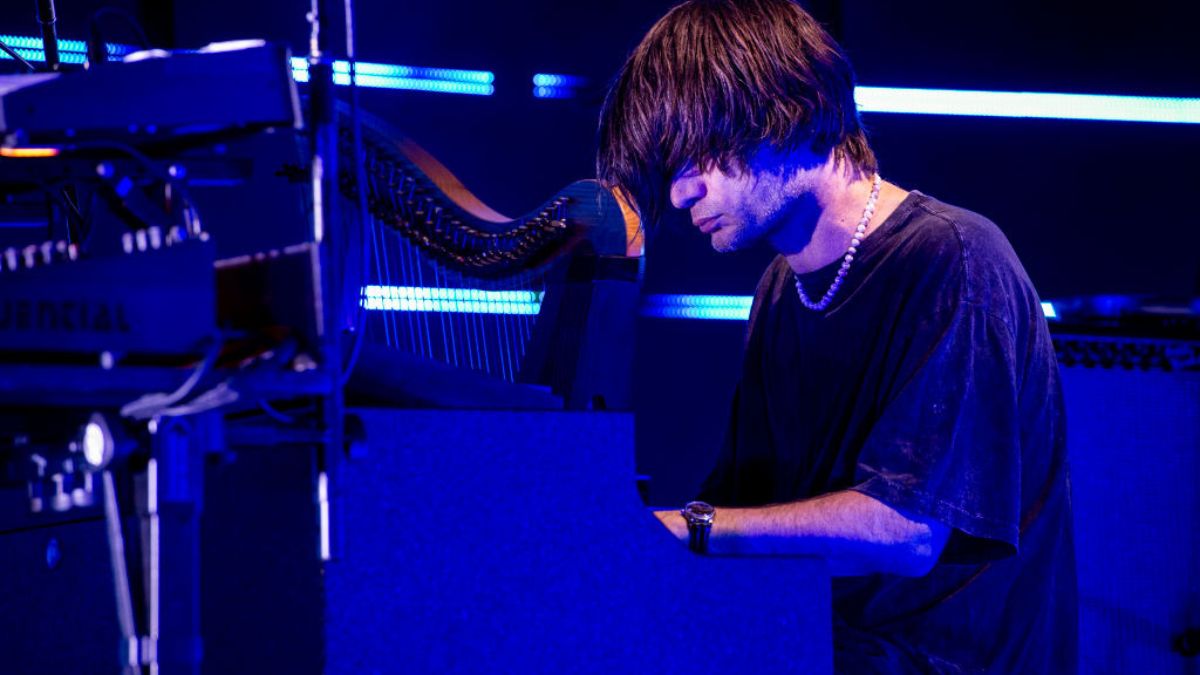
“[There was] no obvious point in which we moved in a more sinister direction…” – Dr. Robert Laing, played by Tom Hiddleston.
It’s in the above moment that Ben Wheatley’s High-Rise comes together as a gloriously morose deconstruction of society, instead of a contained bit of apocalyptic psychosis brought upon by wealth, greed, and lonely isolation. Wheatley’s J.G. Ballard adaptation is utterly sophisticated madness – barbarism of the highest order, if you will. Contained in the walls of a towering, concrete high-rise is an experiment come-to-life, as we study how the human mind copes with being locked away from civilized humanity, and how morals crumble given the slightest manipulation of hierarchical class systems. Wheatley has an eye for regal destruction, as he plots out a dystopian nightmare that’s brought on by either a raging apocalypse outside the structure’s walls, or the absolute savagery of man – how optimistic are you about our society?
As mentioned above, Tom Hiddleston plays Dr. Robert Laing, a physician who is also the newest tenant of a promising new high-rise community. Everything can be found inside the structure, from supermarkets to lavish botanical gardens, which creates a sense of detachment from the outside world. As Laing starts to meet his neighbors, including the building’s architect, Anthony Royal (Jeremy Irons), he tries to assimilate with the obvious class system that’s already in place.
As Royal puts it, everyone has a slot to fit in, whether they’re lowly, basement-dwelling families, or the affluent inhabitants who reside in more lavish domiciles above. Laing has the ability to traverse the floors, hiding in plain sight, but as tensions between the two classes rise, anarchy erupts in the tower. The poor start taking back from the rich, while Royal hides away in his penthouse like a mad king. Where there are classes, there will always be turmoil – Royal’s tower just happens to bottle it in one location.
The high-rise is an obvious metaphor for class systems, because people are literally separated by “lower” and “higher” levels. Yet, as the above quote mentions, Wheatley cleverly creates a film with no clear instigating factor. Inside the tower, life has gone to Hell. Families drift apart, riots break out, lawfulness is forgotten, and power rules all – but outside, no signs of societal deterioration exist (cleverly captured by Wheatley’s lens).
Inhabitants of the high-rise still venture to work each day, walking through the piles of rubble to a parking lot that’s been transformed into a vehicular graveyard of sorts. Royal’s utopian vision plucks people from societal constraints and gives them unquestioned freedom, which, of course, our most primitive instincts devolve into thoughts of power, control and barbaric acts outlawed some centuries ago.
High-Rise is built on the deranged performances of every apartment owner, as each one reacts to the pressures of self-control with varying results. Hiddleston is our guide into the depths the High-Rise‘s extravagant imprisonment, as we meet the caviar-slurping aristocrats above (James Purefoy, Peter Ferdinando, ect.), and the slighted “normies” below (Luke Evans, Elisabeth Moss, ect.). Status is the only thing that matters, and Luke Evans’ character, Richard Wilder, looks to reclaim the dignity his family has been stripped of, whether that means invading a champaign-popping pool party, or drowning a has-been starlet’s beloved dog. The fight for dominance begins ever so slowly, but before you know it, Hiddleston’s character is beating men to a pulp all for the last can of greyish wall paint. Left to our own devices, this is what we become.
It’d be wonderful to see Luke Evans awarded for his turn as Richard Wilder, who represents a catalyst for many of the film’s antagonistic moments. Evans embraces the maddening chaos of High-Rise, and becomes a blood-drenched monster who is a martyr figure for the classes below. Everyone pays the same rent, yet his floor experiences normal power outages and noticeably lesser care – but this is only where it starts. Because of some flickering lights, Wilder becomes this untamed beast, believing that he can take anything he wants like his small-minded, Neanderthalic ancestors. Evans’ presence is powerful, his stare is cold, and his anger seething, which makes for a tremendous performance unlike anything we’ve seen from the highly underrated actor.
Everyone is a tormented delight, though. Hiddleston’s delusional charms are as charismatic as ever, Elizabeth Moss languishes as a trapped housewife, Jeremy Irons dabbles in playing God, Sienna Miller embodies the nosey socialite who knows everyone’s business – the entirety of Wheatley’s perverse fever-dream is brought to life by a vast array of suitable talents.
Bleak despair can be felt when Moss places her children in protective care, just as the penthouse’s debaucherous orgy brings to mind scenes from A Clockwork Orange. It’s perverse class warfare set to a soundtrack of sophistication, boiling down to one simple quote about poor people always complaining about finances, making “everything about money” – this, coming from a wealthy socialite who continues spending wastefully even through her own monetary stash has been depleted.
High-Rise is a bit long in the tooth, but it’s a striking rat-in-a-cage scenario where humanity crumbles under the weight of absolute lawlessness and materialistic consumption. The worst ideas are usually birthed from the best intentions, but Wheatley’s ingenuity goes well-above where most middling dystopian films falter. If you’ve seen Sightseers or Kill List, then the filmmaker’s style won’t be foreign – a beautifully brutal kaleidoscope-view stabbing sequence highlights one of the film’s more interesting angles. It’s poetic madness of man’s basest primal breakdown, but top-notch performances and an embracement of destruction makes for an invigorated glimpse into society’s jubilant demise.
Or, in even simpler terms, High-Rise is a grim reminder that man will certainly become the cause of his own undoing.










Published: Sep 27, 2015 01:37 pm